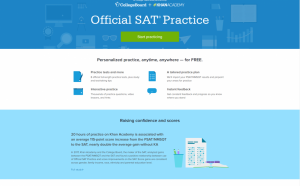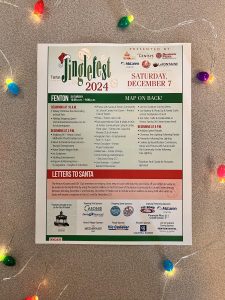What you need to know about the 2020 AP, IB, PSAT and SAT testing

May 20, 2020
After the spread of the coronavirus forced the closure of schools for the remainder of the year, a few modifications have been made to the spring testing schedule to adapt to the stay-at-home orders. Three programs at Fenton High have made their adjustments: AP exams have been virtualized, the IB has cancelled their exams and the SAT and PSAT tests have been postponed.
The College Board has decided to eliminate the multiple choice section on the AP exams. Instead, tests consist of one to two free response questions with randomized prompts so college credit can still be received.
“With the closing of schools, The College Board eliminated some of the material we hadn’t covered,” AP Calculus teacher Steven Karr said. “This meant we went into review mode a little earlier. The hardest part was trying to guess what they would do about the exam. Once we knew what material was not going to be on the exam, and we were given information about the online format, we just continued to move forward with AP free-response problems from previous years, as well as with materials I found online and in a Facebook AP Calculus group.”
Besides a change in format, teachers and students have gained some new responsibilities.
“This will be the first year that the students’ responses will be sent to me,” Karr said. “This is partly as confirmation that the exam was performed by the student, but is also to help determine if the exam format negatively impacted a student’s performance.”
As the exams take place from May 11-22, students have prepared for their respective exams and procedures within.
“In the past, I’ve dabbled with a couple of AP study books like The Princeton Review and 5 Steps to a 5,” senior Megan Beemer said. “This year, I’ve used the newly launched AP Classroom a bit, since some of my classes have given assignments through that website.”
Students have also had to consider their environment, both physically and emotionally.
“I had a positive reaction initially because the exams are shorter and at home, which will most likely be a better environment for me,” Beemer said. “I am a little nervous about the window to upload pictures or documents. If I don’t upload within the given 5 minutes, then I will lose all credit for the question. However, I just remember that it’s not the end of the world if I don’t get a high enough score for college credit. If I don’t pass my exams, then it means I’ll have an easier first-semester retaking material that is already familiar to me rather than taking more difficult classes.”
In March, The International Baccalaureate Organization stated that their final exams had been canceled.
“It was definitely shocking to hear that the IB exams were canceled,” junior Chelsea Bujak said. “Though there was only one test I would have taken this year, I am missing out on the opportunity to see what the tests are all about.”
College credit will be measured differently for these students as well.
“Students will not receive refunds for their [testing] fees,” IB coordinator Kelly Boike said, “because the IB has been able to use already-completed internal assessments to determine their scores in lieu of final examinations. Most colleges have also indicated that they plan to accept IB scores for credit, as they have in the past.”
Students and teachers alike have had to adapt to these changes.
“My role as IB coordinator has changed in a few ways,” Boike said. “I am not able to meet with students in person to help them prepare for IB assessments. Instead, I had to reach out to IB teachers to collect the internal assessments and predicted grades for every student who had been registered for an exam, and upload the student work and teacher feedback to the IB Information System website, which formulates student’s scores. I’ve also relied on email and Google forms to collect information from students. When a student informs me which university they plan to attend, I enter it into a database to make sure the IB scores are sent to the appropriate school for each student. I then communicate IB login information for July 6–the day IB scores are released–with each student via email.”
Collaboration is a key part of sorting out the changes, especially during the current quarantine.
“This was quite a task,” Boike said, “but I’m really fortunate to work with a very professional group of teachers at FHS. They worked tirelessly (while trying to adapt to remote teaching in all their subjects) to make sure I had all the files, varying in media, needed to upload for the IB.”
Though college credit will be evaluated differently, IB classes haven’t undergone much more change than others.
“There are a couple of differences in what we are doing for the Full IB program now that we are online, but it hasn’t changed too much,” Bujak said. “We are working on a way to get all of the hours required for certain aspects of the IB Core, such as TOK (Theory of Knowledge) and CAS [Creativity, Activity, Service]. The extended essay, another portion of the IB Core, has almost the same standard procedure that it did when we were in school.”
Still, the changes create an interesting way to wrap up the year.
“The end of senior year is typically a time of celebration for the students who have achieved so much through the IB program,” Boike said. “Virtual congratulations are simply not the same as being able to look a student in the eye and tell them how proud I am of their diligence, dedication, and character. I miss seeing the expressions of satisfaction, accomplishment and pride on students’ faces.”
As preparations begin for next year, the state of Michigan announced SAT and PSAT testing will occur in the fall. Dates and other details are to be determined.
“We have some suggested testing dates for the fall, but as a district we have not decided exactly which test dates we will pursue,” counselor Michelle Pietraszkiewicz said. “As of right now, our latest communication from the state indicated that all sophomores and juniors will be taking the PSAT/NMSQT rather than the PSAT 9 or 10 that they were originally scheduled to take in the Spring. This is a great advantage to our students, since they typically have to pay to take this additional test. The juniors will all be eligible for the NMSQT scholarship if they score high enough, which is a nice perk as well.”
There are some ways students can start preparing for these tests now.
“The best preparation is to login to your collegeboard accounts and review your previous PSAT test results,” Pietraszkiewicz said. “You can see what questions you answered incorrectly. It also tells you the level of difficulty for each of the questions. Another excellent online preparation tool is Khan Academy. You can take practice tests or review topics or subjects that you are not as confident about. It is not uncommon for some of our advanced math students to have forgotten basic Algebra skills since they haven’t had that class in a while. It benefits them to go back and review some of those concepts prior to testing.”
While the coronavirus has brought about several changes and unknowns, students and staff at Fenton High are working hard to wrap up the year together.
“Though it has been difficult figuring out how to handle this situation,” Bujak said. “All of the teachers and staff have been extremely helpful through this and make getting through these unprecedented times much easier. I am very grateful for their hard work.”









